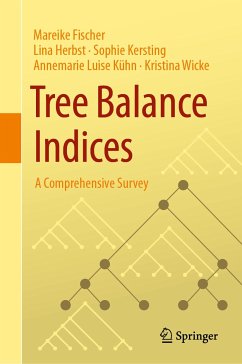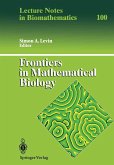Whether you are looking for an introduction to the field of tree balance, a reference work on the multitude of available balance indices or inspiration for your future research, this book offers all three. It delves into the significance of tree balance in phylogenetics and other research domains, where numerous indices have been introduced over the years. While the variations in definitions and underlying principles among these indices have long remained a challenge, this survey addresses the problem by presenting formal definitions of balance and imbalance indices and establishing desirable properties.
The book is comprehensive both in the inclusion of a variety of indices and in the information provided on them: the authors meticulously analyze and categorize established indices, shedding light on their general, statistical and combinatorial properties. They reveal that, while some known balance indices fail to meet the most basic criteria, certain tree shape statistics from other contexts prove to be effective balance measures. The collected properties are neatly presented, numerous new results are established, open research questions are highlighted, and possible applications are discussed.
Reviewing over twenty (im)balance indices, a wealth of mathematical insights is provided, accompanied by real-world examples showcasing the importance of tree balance in diverse research areas. Catering to researchers, students, mathematicians, and biologists, the book can be used as a textbook for university seminars, a reference on tree balance, and as a source of inspiration for future research. It is accompanied by the free R package 'treebalance', a powerful tool to further explore and apply the discussed concepts, and a website allowing quick access to the main information and the latest developments in the field.
The book is comprehensive both in the inclusion of a variety of indices and in the information provided on them: the authors meticulously analyze and categorize established indices, shedding light on their general, statistical and combinatorial properties. They reveal that, while some known balance indices fail to meet the most basic criteria, certain tree shape statistics from other contexts prove to be effective balance measures. The collected properties are neatly presented, numerous new results are established, open research questions are highlighted, and possible applications are discussed.
Reviewing over twenty (im)balance indices, a wealth of mathematical insights is provided, accompanied by real-world examples showcasing the importance of tree balance in diverse research areas. Catering to researchers, students, mathematicians, and biologists, the book can be used as a textbook for university seminars, a reference on tree balance, and as a source of inspiration for future research. It is accompanied by the free R package 'treebalance', a powerful tool to further explore and apply the discussed concepts, and a website allowing quick access to the main information and the latest developments in the field.









